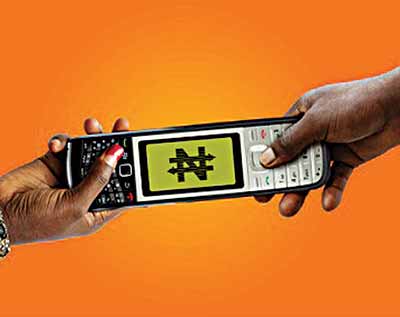 INTERNATIONAL Finance Corporation (IFC), in its latest study, has revealed reasons behind low usage level of digital financial services in West Africa.
INTERNATIONAL Finance Corporation (IFC), in its latest study, has revealed reasons behind low usage level of digital financial services in West Africa.
IFC, a member of the World Bank Group, observed the phenomenon in many emerging markets, stressing that this poses a key challenge to the expansion of financial inclusion.
The study was based on research in the largest digital financial services market in West Africa, and finds that almost half of all registered users of mobile money accounts in Cote d’Ivoire do not regularly use their accounts. The reasons for this are several, including customers finding the service irrelevant or too costly.
IFC Program Manager for the Partnership for Financial Inclusion, David Crush, said digital financial services have expanded rapidly in recent years, especially in sub-Saharan Africa, extending financial services to many rural and low-income communities that were previously excluded.
Crush, however, said the challenge now is to make sure products and services are improved to meet the specific needs of new customers.
The research report was produced by the Partnership for Financial inclusion, a joint initiative of IFC and The MasterCard Foundation to expand microfinance and advance digital financial services in Sub-Saharan Africa in order to help achieve global Universal Financial Access by 2020.
Director of Programs, Financial Inclusion & Youth Livelihoods at The MasterCard Foundation, Ann Miles, said: “The research from Côte d’Ivoire is a wake-up call to all of us working to advance financial inclusion. More than ever, digital financial service providers need to understand early and often what it is that low-income clients need and expect in a mobile money account, and then offer that product or service affordably and conveniently.”
The report makes a number of recommendations based on the research findings, including the need to keep prices of digital financial services low, offer a broad range of products and services that cater to customers with irregular incomes, and to ensure good customer education.
Meanwhile, another report by The Boston Consulting Group (BCG) suggested that the use of mobile financial services in sub-Saharan Africa to do such things as pay utility bills and send money to relatives could produce an estimated $1.5 billion in fees for mobile-money providers by 2019.
The report said that sub-Saharan Africans are looking for more-secure ways to borrow and save money and are open to other financial products delivered using mobile phones, including loans and insurance.
Although mobile financial services are emerging all over the world, sub-Saharan Africa’s unique circumstances — a combination of a mostly “unbanked” population and heavy mobile-phone penetration — have turned the region into an early adopter of mobile banking and a test bed for the technology’s potential.
The report claimed that eight of the 10 countries that make the most use of mobile financial services are in Africa, and sub-Saharan Africa has the highest proportion of active accounts (43 percent).
With the population in sub-Saharan Africa growing and becoming wealthier, the number of people aged 15 or older with an individual yearly income $500 or more will rise to more than 460 million by 2019.
This trend, according to BCG is likely to strengthen as governments in sub-Saharan Africa increasingly focus on their education, health, and security systems — enhancing the potential for long-term economic growth in their countries.
According to BCG, by 2019 there will also be some 400 million unique mobile-phone subscribers and almost 150 million traditionally banked sub-Saharan Africans. That will leave some 250 million sub-Saharan Africans aged 15 or older who have incomes of $500 or more and mobile phones but no traditional bank account. This gives a sense of the potential market for mobile financial services.
“Mobile financial services aren’t new, but they’re at an inflection point and adoption is accelerating,” said Hans Kuipers, a BCG partner and coauthor of the report. “This is not something that African banks or MNOs can afford to ignore. A bank or MNO that isn’t active in the market runs the risk of becoming less and less relevant.”
